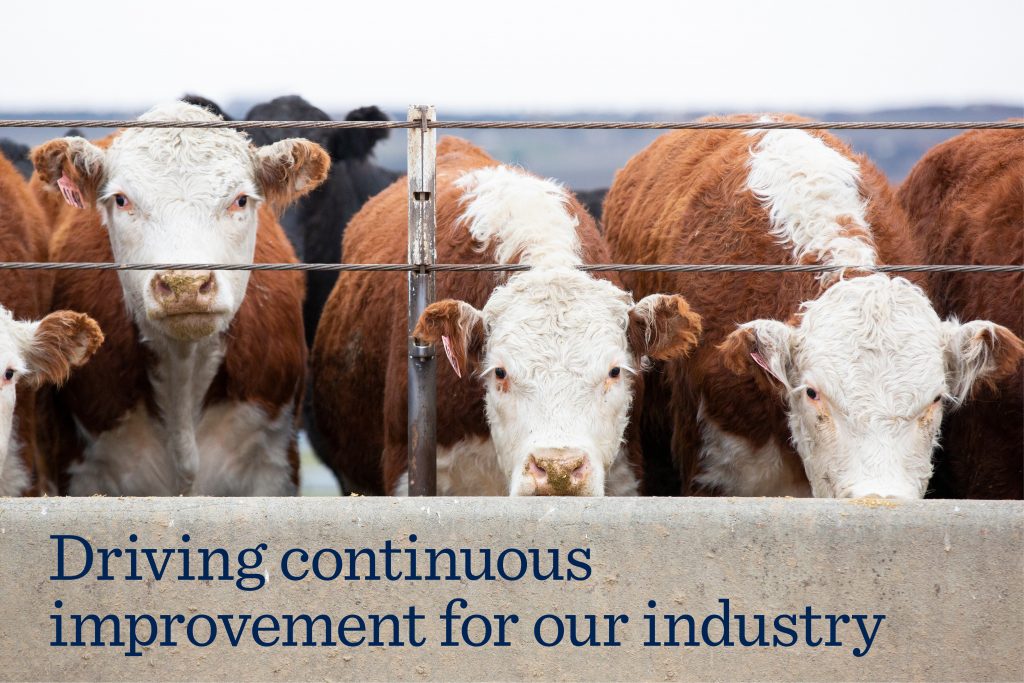As a leader in the beef industry, Tyson Fresh Meats is committed to exploring and investing in new technologies that will help us bring the beef inspection process into the 21st Century and drive continuous improvement for our industry. At the heart of this is maintaining our commitment to the safety and wellbeing of our team members, while delivering the safest and most wholesome beef to our consumers.
That’s why we’re excited to announce the launch of a new project to modernize beef inspection, partnering with U.S. Department of Agriculture’s (USDA) Food Safety and Inspection Service (FSIS) at our Holcomb, Kansas facility. This project is slated to begin in early January 2021. As part of the USDA-FSIS’ ongoing efforts to modernize using science and data, this project will enable Tyson Fresh Meats to introduce new technology and innovation to advance the beef industry’s current inspection system.
What’s important to understand about beef modernization? To help you get up-to-speed on this new Beef Inspection Modernization project, we’ve put together a list of the “Top 5” features and benefits we believe are key to its success:
1. Prioritizing team member safety. The health and safety of our team members is our highest priority. Food safety remains the primary focus with this project, not line speed. As with all our operations, the line speed at our Holcomb plant will continue to operate at a rate that is appropriate to ensure team member safety, animal welfare, and food safety.
As part of our response to the pandemic, we have transformed our facilities, working closely with the Centers for Disease Control (CDC) and the Occupational Safety and Health Administration (OSHA) to put safety measures in place at our facilities that meet and exceed requirements. We will ensure this new inspection process also meets and exceeds the recommended guidelines and our safety requirements.
2. USDA inspection authority. USDA-FSIS will continue 100% inspection authority of all beef, before and after harvest. This modernized approach will enable FSIS inspectors to broaden their focus to complete additional tasks for verifying food safety and animal welfare that will enhance inspections. Both Tyson and FSIS will be completing additional microbiological testing on beef carcass and cuts of meat.
3. Innovative technology. Incorporating new technology such as vision systems, machine learning, and cameras will visually capture the carcass during pre-sortation and will enable Tyson Foods to secure and share more data and information with our producers, providing a new level of transparency and opportunity for two-way communication with cattle producers.
4. New, highly specialized Tyson team member positions. Rather than having FSIS inspectors direct Tyson team members to trim defects identified on the carcass, this modernized approach allows additional, specially trained team members to presort the product and remove defects – then presenting it to FSIS to perform a complete inspection. We have partnered with leading academic experts from Iowa State University’s Center for Food Security and Public Health to develop a robust training program for these new team member roles.
5. Increased transparency and knowledge-sharing with our livestock producers. Armed with the project’s new technology, we will be able to deliver much more detailed inspection reports to our producer partners, including: “on demand” access to recorded video footage of the carcass; high-resolution images and tissue sample results; treatment assessments surrounding identified diseases detected at inspection; and insights that can potentially improve livestock health. This new reporting feature is the closest thing they’ll have next to their veterinarian conducting a post-mortem examination of their livestock.
The data and information collected during this project will inform the USDA’s future regulatory rulemaking process to enhance food safety for our industry as a whole. Currently, Tyson’s Holcomb facility is the only beef plant in the U.S. with USDA approval to test a modernized approach to beef inspection, but we hope there will be opportunities to expand this modernized inspection system to other Tyson plants in the future.
We look forward to sharing more about beef modernization and our learnings as this project gets up and running!







